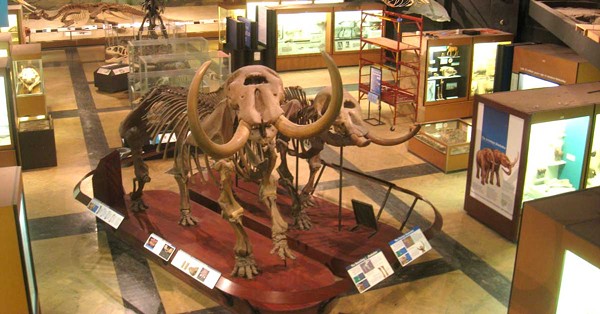A long time ago, massive mastodons roamed North America, including Michigan. However, the prehistoric beasts went extinct more than 10,000 years ago, possibly due to overhunting by early humans.
Now, the mastodon is on track to become recognized as the first-ever national fossil of the U.S.
Bipartisan legislation called the National Fossil Act recently passed the Senate unanimously. The legislation celebrates the mastodon’s place in American natural history.
The bill was co-sponsored by U.S. Senators Gary Peters, a Michigan Democrat, and Mike Braun, and Indiana Republican.
Michigan named the mastodon its official state fossil in 2002, and some of the best mastodon fossil specimens are from here. One of the most complete mastodon skeletons ever found was discovered near Owosso, and is on display at the University of Michigan’s Museum of Natural History.
“Michigan made history when we uncovered one of the most complete skeletons of the mastodon ever found, and we continue to find traces of this prehistoric giant all throughout our state,” said Sen. Peters. “The mastodon represents a unique piece of both Michigan’s and our nation’s history. By establishing the mastodon as our national fossil, we can better preserve that history and inspire a new generation of scientists and researchers to continue their pursuit of discovery.”
Mastodon fossils have been found in more than 250 locations across the state, and the longest and most intact trail of mastodon footprints was discovered near Ann Arbor.
A furry, first-dwelling distant relative of modern elephants, mastodons towered at more than 10 feet tall, weighing more than 11 tons.
The idea to name the mastodon Michigan’s official state fossil was proposed by a Washtenaw Community College geology professor, with support from K-12 students and teachers across Michigan.


